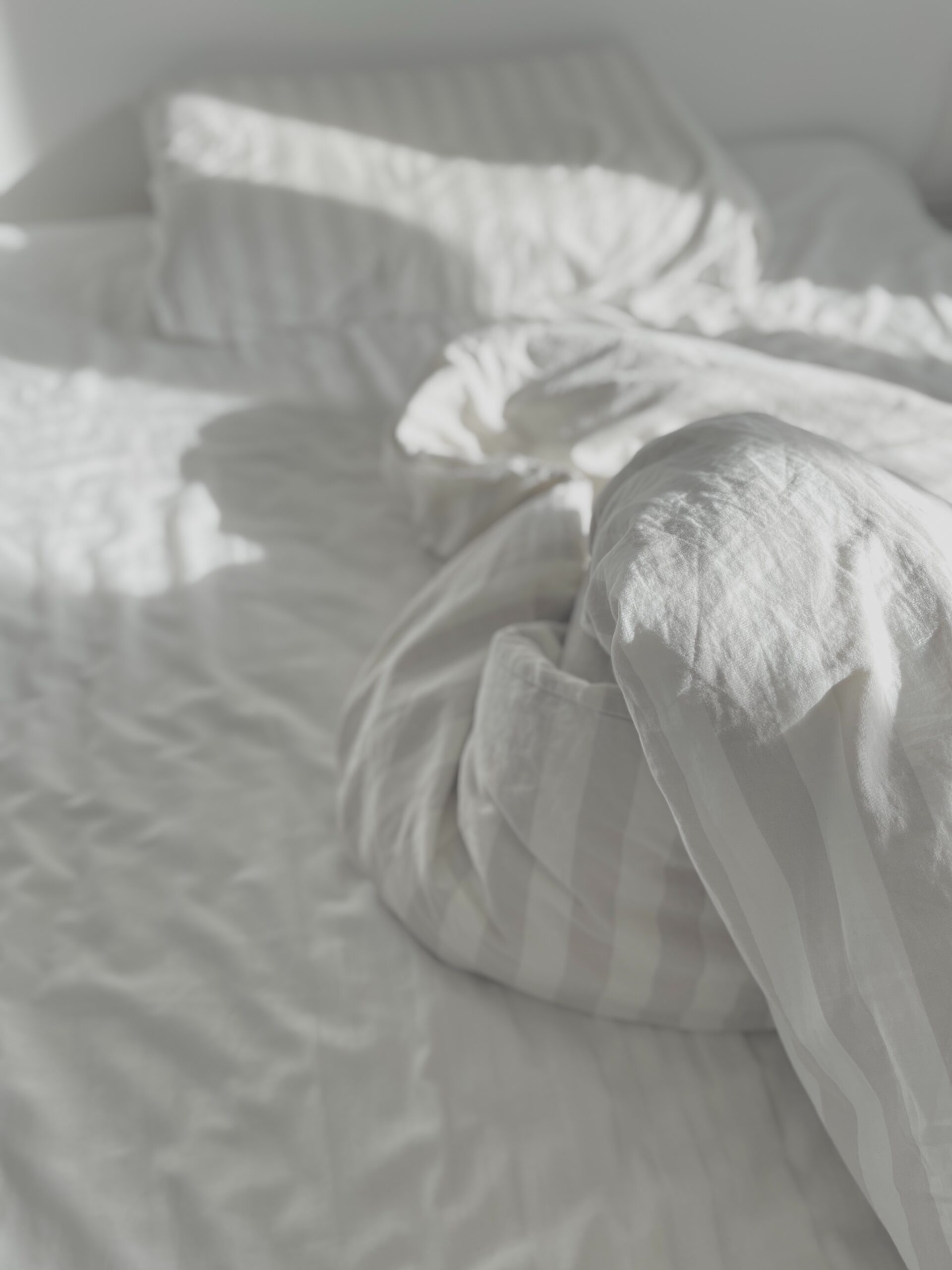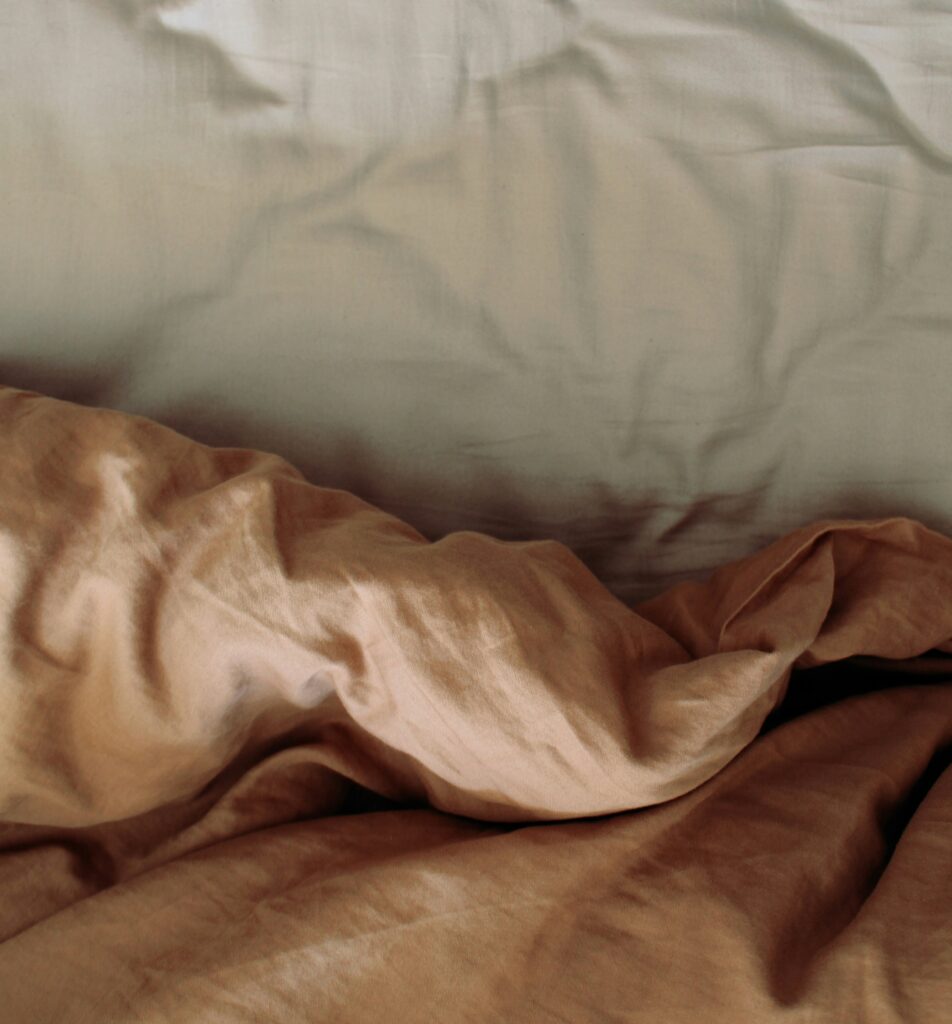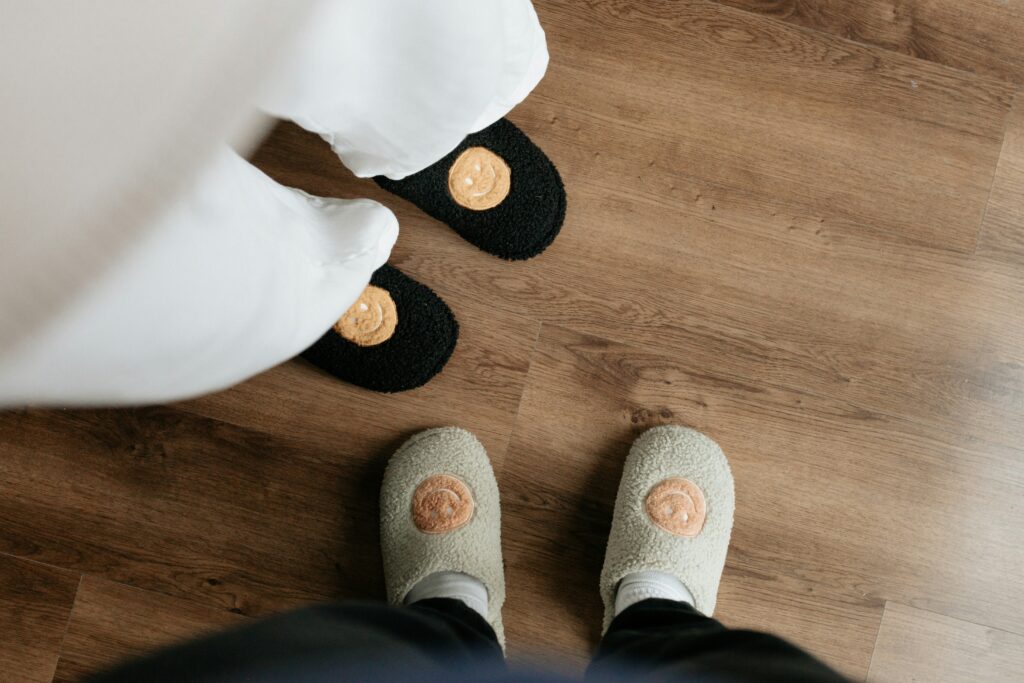BLUE LIGHT CARD DISCOUNTS available across all therapies and packages. Thank you NHS.
Restful Nights, Resilient Immunity- How Quality Sleep Boosts Your Body’s Defences, Aids Allergy Relief, and Supports Optimal Health.

In the fast-paced hustle of modern life, sleep often takes a backseat to other priorities. We push ourselves to meet deadlines, socialise, or binge-watch our favourite shows, often sacrificing precious hours of rest in the process. Add to this the presence of snoring partners or mini humans with zero respect for the concept of sleep needs and adult routines, and one can quickly find themselves bleary eyed and sleep deprived.
Despite its time in the health spotlight and our collective quest for better wellbeing, we still often overlook the transformative power of sleep. Beyond its rejuvenating effects, sleep serves as a cornerstone of health, influencing facets as broad as immune resilience, the microbiome, allergy response and detoxification, in addition to the host of body processes that are essential for our bodies to feel good. In this post, we’ll see how prioritising quality rest can unlock a multitude of benefits, explore the profound impact of sleep on balanced immunity, uncover some of the science-backed benefits of rest and offer practical strategies for building a positive sleep routine to support your mission to feel well.
THE SCIENCE BACKED BENEFITS OF SLEEP FOR BODY HEALTH
Scientific evidence overwhelmingly supports the importance of quality sleep for whole body health. With all our body systems ultimately connected prioritising sleep and adopting healthy sleep practices, allows us to also reap the numerous broader body benefits that restorative rest can bring.
Here are but a few:
– ENHANCED COGNITIVE FUNCTION:
Adequate sleep is essential for optimal cognitive function, including memory consolidation, problem-solving abilities, and decision-making skills. Research has shown that sleep deprivation can impair cognitive performance, leading to decreased attention, concentration, and cognitive flexibility.
– IMPROVED MOOD REGULATION:
Sleep plays a crucial role in regulating mood and emotional well-being. Getting enough sleep is associated with lower levels of stress, anxiety, and depression. Sleep deprivation can increase susceptibility to mood disorders and negative emotional states.
– REDUCED RISK OF CHRONIC DISEASES:
Sleep is a critical factor in maintaining overall health and reducing the risk of chronic diseases such as obesity, diabetes, and cardiovascular disease. Sleep deprivation has been associated with weight gain, insulin resistance, hypertension, and other risk factors for chronic condition.
– ENHANCED PHYSICAL PERFORMANCE:
Optimal sleep is essential for athletic performance and physical recovery. Quality sleep supports muscle repair and growth, hormone regulation, and energy restoration, leading to improved athletic performance, faster reaction times, and reduced risk of injury.
-HEALTHY METABOLISM AND WEIGHT MANAGEMENT:
Sleep plays a significant role in regulating appetite hormones and metabolism. Adequate sleep helps maintain a healthy balance of hormones involved in hunger and satiety, such as leptin and ghrelin. Chronic sleep deprivation disrupts these hormonal signals, leading to increased appetite, cravings for high-calorie foods, and weight gain.
– IMPROVED CARDIOVASCULAR HEALTH
Sleep plays a crucial role in cardiovascular health, including blood pressure regulation, heart rate variability, and vascular function. Chronic sleep deprivation is associated with an increased risk of hypertension, heart disease, stroke, and other cardiovascular conditions.
– ENHANCED MENTAL HEALTH AND RESILIENCE:
Quality sleep is essential for mental health and resilience. Adequate sleep supports emotional regulation, stress management, and coping abilities, while chronic sleep deprivation is associated with an increased risk of mental health disorders such as depression, anxiety, and bipolar disorder.

THE ROLE OF SLEEP IN IMMUNE FUNCTION, SENSITIVITY AND ALLERGIC RESPONSE
Before delving into the relationship between sleep and immune health, it’s essential to understand the role and intricate workings of the immune system. This complex network of cells, tissues and organs serves as the body’s defence mechanism, protecting us from harmful pathogens like bacteria, viruses and fungi. A robust immune system-that responds to threats appropriately, remembers these threats for future protection and manages the switching on and off of our inflammatory responses- is crucial for warding off infections, generating appropriate healing and maintaining positive health.
When navigating sensitivities and allergic reactions, the immune system orchestrates a multifaceted interplay involving various immune cells and regulatory mechanisms. This intricate process encompasses the recognition, tolerance, and resolution of allergens that the body in error perceives as threats, prompting an unnecessary inflammatory response. Through a coordinated effort, immune cells work to regulate the body’s response to these perceived threats, ultimately aiming to mitigate allergic symptoms and restore immune balance.
Allergies, intolerances and sensitivities can wreak havoc on health. and sleep plays a multifaceted role in the driving or disruption of immune healing. Exerting a profound influence on the body’s immune memory and flexibility as well as impacting wider systems of the body that play a vital part in the allergic puzzle, the importance of rest as a mitigating factor in allergic reactions and recovery cannot be ignored. When our eyes are shut and our beings seemingly in off mode, the immune system and overall body conducts much needed maintenance, restoration and repair.
Sleep plays a pivotal role in supporting immune function and the management of allergic disease through various mechanisms:
– ENHANCED IMMUNE CELL ACTIVITY
During sleep, the body ramps up the production and activity of immune cells, bolstering its defence against pathogens and foreign invaders. These cells include cytokines, that help coordinate the body’s response to infections and inflammation, aiding in the eradication of microorganisms that can cause disease. And white blood cells, including natural killer cells, which are critical for combating viruses and cancer cells. Just as sleep is known to help the brain consolidate learning and memory, studies also suggest it can strengthen immune memory with the interaction of immune system cells during sleep reinforcing the system’s ability to remember how to recognise and react to dangerous threats.
– IMPROVED IMMUNE FUNCTION
In conjunction with the point above, quality sleep supports the function of immune cells involved in allergic responses, such as mast cells and eosinophils. These cells play a crucial role in the body’s defence against allergens but can also contribute to allergic inflammation when overactive. By promoting the optimal functioning of these immune cells, sleep helps modulate allergic responses and prevents excessive inflammation
– REGULATION OF INFLAMMATORY RESPONSES
hronic inflammation is linked to a myriad of health problems and conditions from autoimmune disorders to cardiovascular disease. Adequate sleep helps regulate the body’s inflammatory responses, reducing the risk of chronic inflammation and supporting immune resilience and balance. Allergic reactions involve the release of inflammatory mediators such as histamine, which trigger symptoms like sneezing, itching, and congestion. Leaning into sleep helps regulate these particular responses, playing a part in reducing the intensity of allergic reactions. During sleep, the production of pro-inflammatory cytokines decreases while anti-inflammatory cytokines increase, promoting a more balanced immune response and soothing allergic symptoms.
-BETTER MICROBIOME BALANCE
Our microbiome and sleep are intrinsically linked, with our biome exerting effects on our ability to sleep, and our sleep playing a part in the shaping of our microbiome. Intertwined with our circadian rhythms, our gut alters over a 24-hour period and a sustained lack of sleep can bring lasting effects. Decent sleep is associated with greater microbial diversity in the gut, with a diverse microbiome being the robust ecosystem capable of performing various functions such as nutrient metabolism and immune regulation. It can also protect the quality of our sleep. People with diverse and balanced microbiomes tend to enjoy deeper, more efficient sleep and suffer less from chronic allergic disease.
– STRENGTHENED BARRIER FUNCTION
Sleep plays a vital role and is essential in maintaining the integrity of the body’s barrier defences. Supporting the integrity and function of the skin, respiratory tract, gastrointestinal lining and all other mucus membranes all of which serve as physical barriers against external pathogens and allergens alike. A well-rested body is better equipped to repair damaged tissues and strengthen barriers, reducing the likelihood of success for invading microbes thus preventing infections from taking hold. These barriers also guarding against allergen penetration, internal allergen migration (which occurs when leaky gut allows allergens to enter systemic circulation causing an immune response) and allergic reactions.
– CORTISOL BALANCE
Cortisol levels naturally fluctuate throughout the day, with higher levels in the morning and lower levels at night. Chronic sleep deprivation or poor-quality sleep can disrupt this natural pattern and lead to increased cortisol levels, disrupting the body’s stress response. Cortisol balance is vital for immune function and disruption exacerbates allergic susceptibility and response.
– STRESS REDUCTION
Chronic stress can exacerbate allergic symptoms by triggering the release of stress hormones like cortisol, which can amplify inflammation and worsen allergic responses. Quality sleep promotes relaxation and stress reduction, helping lower cortisol levels and mitigate the impact of stress on allergic reactions.
– DETOXIFICATION
The liver is the body’s primary detoxification organ, and it undergoes a number of important processes during sleep that help to eliminate toxins and waste products from the body, the build-up of which can cause inflammation in the body and the breakdown of wider healthy body function. Sleep supports vital liver detoxification via the regulation of hormones such as growth hormones, proteins such as cytokines and enzymes such as the cytochrome P450 that are vital for liver regeneration, repair and function.
– BALANCED NEUROTRANSMITTER LEVELS
There are multiple interactions between the immune and nervous system that indicate the intricate relationship between the two and the role the latter plays in allergic disease. The gut has become known as our ‘second brain’, and our skin is alive with neurons that detect touch, temperature, stimuli that could be problematic (think thermal or chemical) and induce pain as a protective mechanism. Sleep plays a crucial role in regulating neurotransmitter levels in the brain, including serotonin and dopamine, which are involved in mood regulation and allergic responses. Imbalances in these neurotransmitters can influence allergic symptoms and exacerbate underlying allergic conditions. By promoting neurotransmitter balance, sleep helps mitigate the severity of allergic reactions and improve overall wellbeing.
– OPTIMISES MEDICATION AND/OR SUPPPLEMENT EFFICACY
Some allergy medications, such as OTC prescriptions, can cause drowsiness as a side effect. Therefore, getting sufficient sleep can enhance the effectiveness of these medications by allowing the body to metabolise and utilise them more efficiently. Additionally, adequate rest may reduce the need for high doses of allergy medications, minimising the risk of side effects. A similar principle can be applied to more holistic, natural based anti-histamines, whilst side effects are less common, sleep can support the metabolism and absorption, working in greater tandem.
– IMPROVED TREATMENT RESPONSE
Studies across vaccine and chemotherapy have indicated well rested individuals, free from disturbances to sleep and the sleep-wake cycle, exhibit stronger immune responses through higher protective antibody and improved treatment response.

THE CONSEQUENCES OF SLEEP DEPRIVATION ON IMMUNE AND ALLERGIC HEALTH
Sleep deprivation and/or poor sleep quality will have detrimental effects on immune function, leaving individuals more susceptible to a multitude of disease states. Chronic sleep disturbances disrupt the delicate balance of immune cells, impair immune cell activity, and compromise barrier defences. With the accompanying stress response to prolonged sleep loss often scientifically described and viewed as a state of chronic stress and low-grade inflammation.
As a result, sleep-deprived individuals may experience more frequent infections, prolonged recovery times, and increased susceptibility to severe illnesses and chronic poor health- including obesity, diabetes, cardiovascular disease, intolerances and allergies. These disorders further weaken immune defences, creating a vicious cycle of increased inflammation and exacerbating failing health.
PRACTICAL STEPS FOR IMPROVING SLEEP
We all suffer from time to time with a lack of sleep, often driven by an inability to drop off. Any of us who have already struggled with insomnia likely know the often-broadcasted basics of sleep hygiene routines. If so, please forgive the repeats.
Whilst everyone’s individual reasons for insomnia or lack of sleep may be different, covering common practical strategies and some potentially less well-known pearls of wisdom can hopefully remind or refocus anyone still struggling with quality slumber. And for those nursing new humans or traversing tough times, it’s important to know that sleep deprived chapters, with more unique circumstances, can and do pass.
Practical strategies for optimizing sleep quality and reaping the immune supporting benefits for a good night’s zzz.
– ESTABLISH A CONSISTENT SLEEP SCHEDULE
Aim to go to bed and wake up at the same time every day, even on weekends, to regulate your body’s internal clock and promote better sleep quality.
– HARNESS YOUR DAYLIGHT HOURS
Your sleep-wake cycle covers a whole 24-hour period meaning the quest for quality sleep starts in the morning. You can get more solid sleep by ensuring you have access to plenty of daylight during the day and appropriate physical exercise to support your body.
– CREATE A RELAXING BEDTIME ROUTINE
Wind down before bed with calming activities such as reading, meditating or taking a warm bath. Activities that signal to your body that it’s time to sleep.
– OPTIMISE YOUR SLEEP ENVIRONMENT
Make sure your bedroom is conducive to sleep by keeping it cool, dark, and quiet. Invest in a comfortable mattress and pillows to ensure sleep comfort.
– LIMIT SCREEN TIME BEFORE BED
Minimise exposure to electronic devices such as smartphones, tablets and computers, as the blue light emitted can interfere with melatonin production and disrupt sleep. If blue light at night is unavoidable, explore and invest in blue light lens glasses to wear in the evenings.
– WATCH YOUR CAFFEINE AND ALCOHOL INTAKE
Avoid consuming caffeine or alcohol close to bedtime, as these substances can interfere with sleep patterns and reduce sleep quality.
– PRIORITISE RELAXATION AND STRESS MANAGEMENT
Practice stress-reducing techniques such as deep breathing, yoga or mindfulness meditation to promote relaxation and improve sleep quality.
– SHUFFLE YOUR THOUGHTS
According to theory of cognitive shuffling, the brain allows itself to shut down and sleep once the thoughts arising in consciousness are random and disordered-in prehistoric times, a sign that there were no predators or other dangers requiring alertness. The cognitive scientist Luc Beaudoin recommends visualising random images, one after the other, for example, by imagining as many objects as possible beginning with ‘A’ and then ‘B’ then ‘C’. Many find it useful simply switching their thoughts to relaxing, non-committal ones via audio books and relaxing podcasts.
– ADDRESS NUTRIENT DEFICIENCIES AND BLOOD SUGAR BALANCE
Blood sugar balance is intrinsically linked with sleep with sleep having the power to both raise or lower glucose levels and poor sleep being a driver of blood sugar dysregulation. Stabilising your individual levels has the power to aid in the dropping off and maintaining a whole night of slumber. Common nutrient deficiencies can drive blood sugar imbalance, mood stability, individual stress and many more states that contribute to sleepless nights.
– EXPERIMENT WITH SLEEP DEPRIVATION
You may wonder how more sleep loss will help when you’re already struggling however this useful tactic can enable you to develop a more stable sleep pattern. Whilst making you tired at first, limiting the time you spend in bed can help you fall asleep faster and wake up fewer times in the night. As sleep improves you can slowly increase your time in bed in increments to ensure progress remains.
– MAINTAIN PERSPECTIVE
Sleep isn’t going to come when instead of counting sheep, you’re counting the things that could go wrong after a night of wide-eyed wonder. Catastrophising will make everything more stressful so on the occasions you need to admit defeat, swap bed for a restful activity on the sofa. If you are forced into a night time natter with your sunrise seeking offspring, remember tomorrow brings another bed opportunity to hopefully harness.

IMPORTANT TIPS TO AID ALLERGY FRIENDLY SLEEP ROUTINES AND ENVIRONMENTS
Night times can often prove challenging for allergy sufferers. With the activity of the day no longer a focus, symptoms can feel more prominent, adding an extra challenging layer to settling down and finding peace.
Wind down routines hold particular potency for those suffering from skin disorders and wider chronic health issues, with the time it takes to transition from the more demanding days into nightly respite a key time for potentially nurturing yourself and maximising the motion forward towards a more symptom free state. Lather lotions and potions useful in soothing sensitised skin on and leave them to work their magic. Harness restful rituals (however small or quick) from bedtime reading to restorative yoga and give them the space to resonate. Clocking up and reflecting on a day where positive steps to health have been made are vital in maintaining motivation.
Creating an allergy-friendly sleep environment is essential for aiding relaxation and facilitating better rest, and can provide a segment of time where the body can step into a more controlled and soothing space in contrast to the outside world. Minimising exposure to allergens and reducing further triggers thus giving the immune system another kind of rest.
In knowing the difference that sleep alone makes to our immune systems, and by supercharging the environment for holistic immune system health, we can ensure that the maximum healing benefits are harnessed and the moonlit hours become valuable multi-dimensional pauses in the push for balanced immune response.
TIPS TO HELP YOU ACHIEVE A MORE ALLERGY HEALTHY SLEEPING SPACE
– INVEST IN HYPOALLERGENIC BEDDING
Opt for pillows, mattresses, and bedding made from hypoallergenic materials to reduce the accumulation of dust mites, pet dander, and other allergens. Look for products labelled as hypoallergenic or allergy proof.
– USE ALLERGEN-PROOF COVERS
Encase non hypo allergenic pillows, mattresses, and box springs in allergen-proof covers to create a barrier against dust mites and other allergens.
– WASH BEDDING FREQUENTLY
Wash sheets, pillowcases, and blankets in hot water (above 130F or 54C) weekly to kill dust mites and remove allergens. Use a hot dryer cycle to further eliminate allergens.
– WASH YOURSELF BEFORE BED
Thoroughly washing away the days dirt, grim and allergens before bed is not only a positive wind down but a valuable way of removing potential triggers off you before sleep, and also keeping your bedroom free of them.
– CHOOSE FLOOR WISELY
Opt for hard flooring surfaces such as hardwood, tile, or laminate instead of wall-to-wall carpeting, which can trap dust, pet dander, and other allergens. If carpeting is unavoidable, choose low-pile options and vacuum frequently with a HEPA-filtered vacuum cleaner.
– KEEP PETS OUT OF THE BEDROOM
If you have pets, keep them out of the bedroom to minimiSe exposure to pet dander and other allergens. Create a designated sleeping area for your pets elsewhere in the home. Take clothes off outside of the bedroom, away from bedding so that the transfer of allergens into the sleep space is minimised.
– USE AIR PURIFIERS
Invest in a high-quality air purifier with a HEPA filter to remove airborne allergens such as pollen, dust, and pet dander. Place the air purifier in your bedroom to create a cleaner sleep environment.
– CONTROL HUMIDITY LEVELS
Keep indoor humidity levels between 30% and 50% to inhibit the growth of mould and dust mites. Use a dehumidifier to reduce moisture in damp areas of the home, especially during humid weather or in basements.
REGULARLY CLEAN, DUST AND WIPE
Dust and vacuum your bedroom regularly to remove allergens from surfaces and floors. Use a damp cloth or microfiber cloth to wipe down surfaces, as dry dusting can stir up allergens.
– LIMIT CLUTTER
Minimise clutter in your bedroom, as it can trap dust and make cleaning more challenging. Keep surfaces clear and store items in closed containers or drawers to prevent dust build-up.
– CHOOSE ALLERGY-FRIENDLY FURNISHINGS
Select bedroom furnishings such as curtains, rugs, and furniture made from non-porous materials that are easy to clean and less likely to harbour allergens.
CONCLUSION
In essence, sleep is a fundamental pillar of health with far-reaching effects on immune function, allergic and stress responses, detoxification and more, ultimately playing a vital role in our overall well-being. A powerful ally in the fight against infections and illnesses and the battle for immune balance, by prioritising rest and adopting healthy sleep habits we can bolster our body’s defences and drive better health outcomes.
The habits and environments we build to promote solid sleep and harness its holistic prowess have the power to- and can be a catalyst for- complete change in our lives. By being aware of the benefits and by implementing these tips it’s never too late to embrace sleeps potential for a happier and healthier tomorrow for you and all your family.

This post draws on multiple sources of scientific research. Should you wish to know more about the individual papers and information, or receive a list of the full references post, please contact me directly.
A fan of people, plants, leisurely feasts and a good brew, she runs clinics, workshops, women’s circles and wellbeing retreats alongside developing bespoke lifestyle plans for people with complex allergy needs.
Sophie is a certified and registered multi-disciplinary practitioner specialising in the field of immune health and allergy.
© 2021- A Modern Topic
Come connect, share, and learn gently.
For curious minds and open perspectives.
@amoderntopic
Site credit